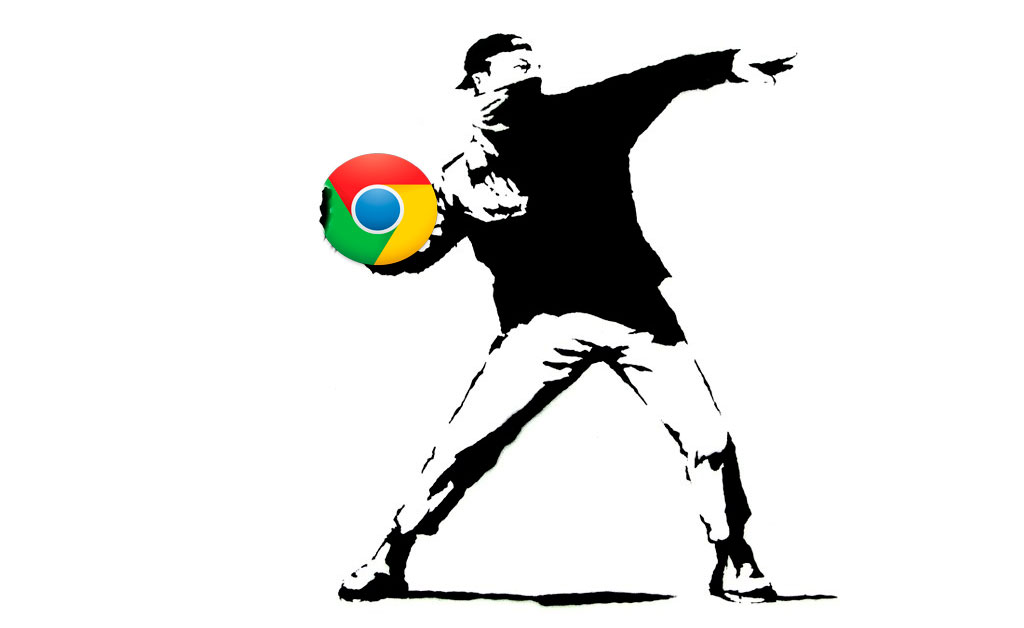
Is the Internet Russia's greatest extremist threat? Images mixed by Kevin Rothrock.
Russia’s Interior Ministry has drafted a ten-year strategy for countering violent extremism, which under federal law includes everything from hate crimes to armed revolution. Under this long term plan, leaked to the newspaper Kommersant, authorities would crack down on extremist information sources and work to cultivate resistance to extremist ideas.
The plan identifies street protests as a “basic instrument for radicalizing society,” arguing that extremists can transform peaceful rallies into riots by spreading hateful ideas online.
According to Kommersant, the Interior Ministry’s new strategy would shift the state’s efforts from focusing on “manifestations of extremism” to challenging “extremist ideology” directly. In practice, this could expand the government’s policing powers by authorizing officials to suppress materials online that are imbued with certain ideological sentiments without being explicitly violent.
The plan suggests four major steps for fighting extremism:
- Monitor Russia’s online and traditional media more closely for extremist ideological propaganda.
- Develop new methods to restrict access to such materials. For example, the authors suggest expanding the reach of Russia’s Internet blacklist.
- Organize “counter-propaganda” campaigns on social networking websites.
- Reform the education of schoolchildren and students of journalism to cultivate opposition to extremism and a sense of moral and professional obligation to fight against extremism and terrorism.
“The authors of the strategy,” Kommersant reports, “are hoping for the ‘ideological support’ of civil society and the mass media.”
Russia isn’t the only country that has identified the Internet as a weapon of extremism. A report by the US government in 2011, for example, called the Web “an increasingly potent element in radicalization to violence, enabling violent extremists abroad to directly communicate to target audiences.” The White House leads what is called a “whole-of-government coordination” against extremism, which includes after-school programs, community-based organizations that assist new immigrants, violence-prevention programs, and other “non-security partners.”
Russia’s counter-extremism policy, however, could have an even greater impact on the Internet. “Unlike the Interior Ministry’s plan,” writes Viktor Stepanov at the RuNet-monitoring website TJournal.ru, “America’s battle against online extremism doesn’t stipulate blocking Web resources or ‘working with Internet providers.’”
The Interior Ministry recently presented its counter-extremism strategy to the Presidential Council on Human Rights, a consultative body that assists the Kremlin with matters regarding political freedom and civil society. The Council’s members have reacted ambivalently to what would be only the latest in a seemingly endless series of laws eroding freedom on the RuNet.




3 comments
Nero, Hitler, The Spanish Inquisition, KKK, all had access to the internet, what more proof do we need that it is a dangerous thing?
We hear the same talk as this from the GOP and right wing groups in the EU, Africa and the Pacific rim – worldwide, there are those who want to subvert freedom with a corrupt argument of humanity and justice.
When a nation faces an attack from outside, it should look at its own actions, no at the effect of the attack but at what provoked it.
When they talk of stopping extremist propaganda, Russia and others are only talking of trying to cover up their own crimes .